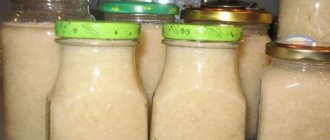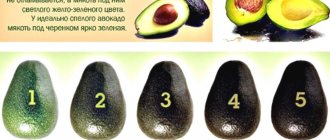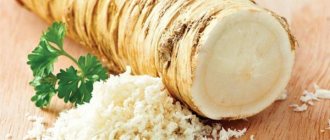Horseradish is considered one of the most useful plants. People mainly eat its rhizomes, which are rich in vitamins, phytoncides and other valuable substances. The crop is very easy to grow, but it is important to prepare it correctly. Experts tell you when to dig, pick, and tear horseradish in the fall for food and storage for the winter, when to dig horseradish for horseradish and how to store it.
Dear readers! For you, we have created communities on social networks in which useful articles and interesting ideas are published several times a day! Subscribe and receive useful content in a convenient format!
When to dig up horseradish
Horseradish is very actively used for making sauces, seasonings, and added to various dishes. The roots can be eaten from early spring to late autumn. But many are interested in when to dig up horseradish for harvesting, for food, in what month, when to dig up horseradish for horseradish and how to store it. This garden crop is very unpretentious. Harvesting can be planned from April to November. But it is important to understand that the characteristics of the product will differ at different times of the year.
In spring, the rhizomes contain more phytoncides and substances responsible for bitterness. At the same time, they are drier and fibrous. In September, October, November, the content of sugars and nutrients is maximum, but the severity decreases. When asked about when to dig up horseradish for harvesting for the winter, many gardeners confidently say that it is better after the leaves begin to turn yellow.
Cleaning time
The time when you need to dig up horseradish depends entirely on the climate of your region:
- In spring, roots are dug up early. We must take time before the shoots begin to grow. As soon as the snow melts and the soil in the garden thaws, you can start digging. At the same time, the plants are transplanted to a new location.
- In autumn, you should wait until the lower leaves on the bushes turn yellow and droop. This is a sign that it is time to dig up the horseradish root for winter storage. In Siberia and the Urals, harvesting is carried out in September-October, in the Moscow region - in October or November.
- When can you dig up horseradish for harvesting? The answer is clear - in the summer from mid-July. It was at this time that housewives began to pickle cucumbers, and later - to make horloder and horseradish.
Attention! In warm autumn, horseradish root can take a long time to grow, so it is not recommended to rush to store them. Wait until the lower leaves begin to die and start digging.
Favorable and unfavorable days for digging horseradish in 2022
With the question of when to dig, pick, and collect horseradish in the fall, people often turn not only to experienced gardeners, but also to astrologers. The moon has a powerful influence on all living things, so it is better to plan the horseradish harvest according to the lunar calendar.
During one cycle, the Moon goes through several phases: new moon, waxing, full moon, waning. The last time to collect root vegetables is best. At this time, sap flow slows down. It is good to make preparations for the waning moon.
On a note!
If you need to dig up a few rhizomes just for food, you don't have to take the lunar calendar into account. It is important to follow the advice of an astrologer if processing or storage is required.
Cold storage
In order for the product to be stored well in the refrigerator, you will have to select the most suitable ones. Please note that the best option would be small roots, no more than 30 cm in length. In this case, the horseradish must be cleaned from the earthen lump and wrapped in film, in which several holes must be made for free air movement.
Please note that the lower the temperature, the better the roots will be stored. So, horseradish will live in the lower section of the refrigerator for about 20 days. If you need to store it longer, then the freezer is the best option. Here he can lie freely for up to 6 months. To do this, the product must be cut into small cubes, dried thoroughly, placed in a plastic bag and stored “until better times.”
How to dig up horseradish correctly
People often ask when to pick or dig horseradish for food or preparations. At the same time, they forget that they need to do it right. The roots of this crop lie very deep, especially if the bush is old. Digging them out is quite difficult.
To do everything according to the rules, you need to arm yourself with a bayonet shovel. You need to dig up each bush separately. To do this, dig around each perimeter to the depth of a full bayonet. If necessary, it is worth digging the handle of the shovel even deeper. Next, you should carefully pull the leaves and pull the roots out of the ground, then clean them of lumps of soil and wash them.
On a note!
Experts advise updating bushes every few years. To do this, you should dig up old rhizomes as completely as possible. If necessary, you can plant new ones. But, as a rule, this is not required. The culture reproduces well on its own.
The benefits and harms of root vegetables
Horseradish is considered one of the most useful plants. The root and leaves contain alkaloid and bactericidal substances, mainly lysozyme. It is a powerful bactericide and fungicide. The rhizomes also contain a huge amount of vitamins.
Horseradish has powerful antibacterial properties that can fight even the most severe forms of infection. It contains calcium and magnesium. The crushed root helps cure many eating disorders, improves appetite, and normalizes blood pressure.
However, overuse of this spice is harmful. Frequent consumption may result in vomiting and diarrhea. The substances contained in this product suppress the activity of the thyroid gland. Horseradish is not recommended for pregnant women and nursing mothers.
You can dig horseradish both in spring and autumn. At the same time, preparations made before winter will be more juicy. In 2022, every autumn month has favorable days for harvesting rhizomes. The time frame for harvesting horseradish is quite extended, so you can choose a convenient time for yourself. Yellowing of the aerial parts indicates that the horseradish is ready to be harvested.
MOST READ FROM PARTNERS
How to store horseradish so it doesn't spoil
Storage technology is very important to preserve all the valuable properties of the product. Horseradish does well in cool and dark rooms. The dug up rhizomes can be placed in boxes, covered with sand and lowered into the cellar. They can also be stored in a similar container on the balcony, but the temperature should not fall below 0 degrees. If the balcony is not insulated for the winter, you should think about preventing the product from freezing.
There is no need to clean the roots before storing them. It is also not recommended to wash them. But before storing them in the cellar, it is worth drying the rhizomes well and sorting out all rotten, damaged specimens.
You can store the roots in the refrigerator for up to 3 months. But first they must be washed and placed in a plastic bag. This product would be best placed on the bottom shelf. Temperature differences there are less significant.
Drying rhizomes
Dried horseradish roots allow you not only to preserve all the valuable vitamins and minerals contained in the plant, but also not to lose its specific aroma. This option is well suited for housewives who like to add horseradish to all kinds of sauces, seasonings, and soups.
To prepare the product, you first need to cut it into thin pieces. Then you will need to preheat the oven to 60 degrees (if this is too low for your oven, set the lowest temperature), arrange the slices on a baking sheet in one layer, and then put them in the oven.
An hour and a half is enough for drying. Once the slices have hardened, they can be chopped in any way convenient for you:
- grind in a food processor;
- grind in a mortar;
- grate.
The crushed product must be placed in glass or porcelain, and then the container must be tightly closed with a lid.
What horseradish preparations to make for the winter
You can make a lot of tasty and healthy preparations from horseradish, which are then used as an addition to dishes. The classic recipe for the preparation involves chopping peeled rhizomes in a meat grinder or blender, adding sugar, salt, and water. For 250 g of chopped roots you will need 150 g of water, 1 tsp. salt, 1 tbsp. l. Sahara. In this case, it is better to dissolve sugar and salt in water in advance, pour the solution into chopped horseradish, placed in sterile jars.
Marinating in jars
There are a huge number of recipes with which you can store horseradish in jars. Most often they prefer to roll it into dishes in the form of sauces. An example is the famous horseradish. But if you want to keep the product pure, consider a recipe that will help you do this.
So, first you will need to take a meat grinder or a regular grater to finely chop 1 kg of rhizome. Please note that during the grinding process fumes are released that can irritate the mucous membranes of the eyes and nose. Therefore, it is recommended to wear special protective masks and goggles, and put a plastic bag on the top of the meat grinder.
Grated or rolled horseradish must be placed in a specially prepared marinade. To do this, you will need to boil 250 ml of water in a saucepan, and after boiling, add 1 tablespoon of salt and sugar. Following them, 125 ml of apple cider vinegar should go into the bowl (if you don’t have it on hand, use 20 ml of citric acid) and, in fact, the ground roots. Then all this is thoroughly mixed and covered with a lid.
Actually, the product for preservation is ready. Next, all you need to do is sterilize the jars, spread out the mixture and roll it up tightly. You can store horseradish this way for several years.
Bookmark in the cellar
Before hiding the roots in the cellar, you must first carefully inspect it. The room should be clean and dry, and there should be no traces of any pests or mold. Remember, if unwanted living creatures are found in the basement, you can remove them from there using smoke or carry out disinfestation and deratization of the room. Please note that after the preparatory procedures, horseradish cannot be placed in the cellar for at least two weeks. Therefore, try to prepare in advance.
After all the preparatory procedures are completed, it is time to start planting the rhizomes. Here, too, certain conditions must be observed. First of all, it is important to know that horseradish is best stored in wooden boxes. It is necessary to pour earth at the bottom, and then lay the first layer of roots so that there is a certain distance between them. Next, you can lay down several more layers of horseradish, sprinkling the bottom layer with wet sand. Remember, the sand must be clean, without any impurities, including soil.
Please note that for spring varieties of horseradish, the problem of possible germination is relevant. Dealing with it is quite simple. All you need to do is sprinkle the rhizomes with a small amount of slaked lime. After this, the entire bookmark procedure described above is performed in the same order.
Remember, if you put horseradish in the basement for storage, you definitely need to keep an eye on it. If you notice rotting on at least one root, it must be thrown out immediately. After this, the entire box must be treated with antifungal drugs. It is also unacceptable for horseradish to dry out. If you notice something like this, you need to put some damp sand in the box, after which the problem will solve itself.
If you carefully monitor the product and are able to follow all the stowage technology, the product can remain in the basement for up to 1.5 years. If you do not have your own cellar, the other methods described above are suitable alternatives. Remember, you can store horseradish, the main thing is to do everything correctly, and then it will delight you with its amazing taste and aroma throughout the winter.
It's amazing how many beneficial properties products can have that are unremarkable at first glance. Horseradish is one such example. This root contains phytoncides, which strengthen the human immune system and support it during the cold season. Ascorbic, glutamic acids, vitamins and microelements help in the treatment of bronchitis, sore throat, hypertension and rheumatism. And its bright taste and aroma make horseradish indispensable when preparing various types of meat dishes, preserves and sauces.
The plant is unpretentious and grows quickly in the garden, without requiring special care. Storing horseradish is as easy as growing it. The most common methods are the following:
- cold storage and freezing;
- drying;
- conservation.
Before considering in detail how to store horseradish, it should be noted that it is best to store the root of a plant that is 2-3 years old. Younger specimens will be too thin, and older ones will be loose. In both cases, the root will dry out quickly and will not fully retain its beneficial properties. Harvest in late October - early November; Roots with cracks or other damage cannot be stored.
Freezing roots
To preserve the roots, they should be frozen. To do this, thoroughly washed roots are peeled and cut into pieces convenient for processing. Next, put them in bags and put them in the freezer. Horseradish can be stored there for a long time, fully retaining its beneficial properties. Just don’t need to constantly defrost and re-freeze them - the fruit loses its benefits.











